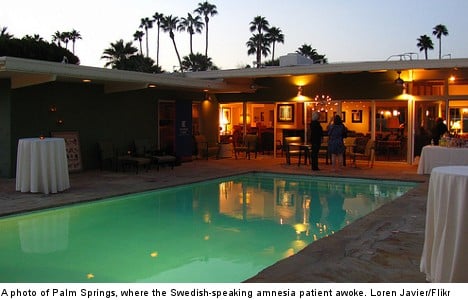Social workers have been trying for months to piece together the life story of the man, found in February, with only a few belongings in his possession and identification naming his as Michael Thomas Boatwright.
USA Today reported on Saturday that when the man awoke last week from his unconscious state in hospital in Palm Springs, nurses had difficulty in understanding anything the man said. Understandably so, since he could only converse in Swedish, insisting that his name was Johan Ek and remembering nothing about his previous life.
“The guy Michael — it wasn’t me. I’m still Johan,” he told social workers through a translator. “When I look at my photos, I see my ex-wife and my son, my mother and grandmother. But I don’t recognize them. I don’t know them,” he added.
Doctors have made a diagnosis of transient global amnesia – a condition related to memory loss that is usually triggered by emotional or physical trauma.
According to his driving license, the man was born in Florida yet investigations have led further afield to time he spent living in China and Japan. Social workers made contact with a local Swedish-American organization, whose members are providing a translation service for the man. Member Viola Wyler has spoken at length in Swedish with Boatwright in an attempt to trigger his memory.
“All of the events that he talked about, he has never been involved in it; he always feels that he was looking in,” Wyler said, adding that she believed the man could have been in Sweden in the mid-1980s. Since she cannot pinpoint a regional accent, she believes he either learned the language later in life or has not used it for a number of decades.
With no no insurance, no income and only $180 in his pocket, the Swedish-speaking man with no memory is proving a headache for hospital staff. Boatwright, meanwhile, has insisted he was not faking his condition.
“Walk in my shoes for one day,” he said. “You’ll experience the nightmare of a lifetime.”
The Local/cd




 Please whitelist us to continue reading.
Please whitelist us to continue reading.
Member comments